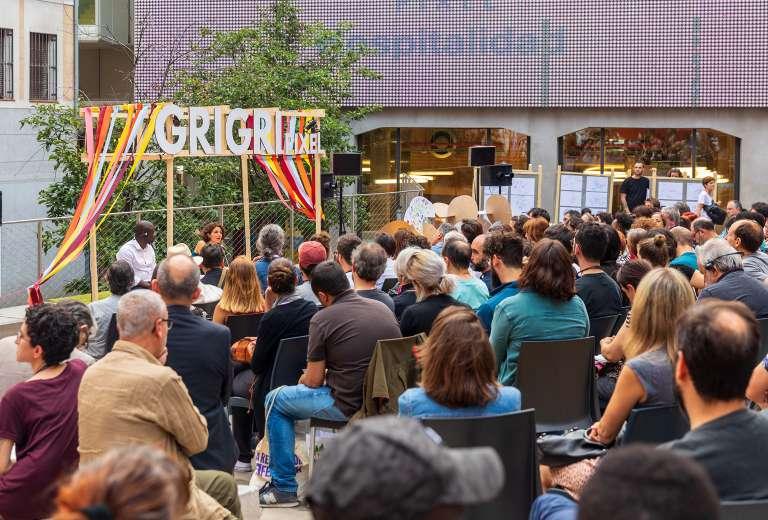
14 minute read
IV EDITION Hospitality
IV Edition HOSPITALITY
2016-2020
Advertisement
G R I G R I P I X E L
Hospitality MADRID 2019
From May 23 to October 28, 2019 at Medialab Prado and at SERCADE.ong.
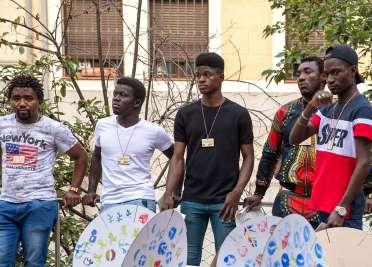
Part of the team of community mediators:
Yannick Tresor, Ibrahima Sarry, Mamadou Kama
te, Steve Zedong y Talla Fall. Missing in the photo: Nasser Sokante, Mamadou Fofana, Abdou
Azizi y Ousmane Balde
In 2019, the fourth edition of Grigri Pixel is celebrated with a program that revolves around the theme of hospitality and has two main objectives: on the one hand, reflect on the power that arises in a territory when it is able to open, facilitate the encounter and give rise to that apparently different, foreign and strange and; on the other hand, to demonstrate the capacity of these processes to enrich each other's people, expanding their horizons and common imaginary.
Through a multiple collaboration at the local level between Medialab Prado, Sercade (reception center for migrants from Sub-Saharan Africa) and the Neighborhood Association of the Las Letras neighborhood, we propose a program of actions to be developed together with people who want to join, punctually or continuously, to bring knowledge and experiences with the aim of elaborating and sharing narratives, imaginary and points of view on the idea of "we" in the city of Madrid.
The program will be organized from May to June from three sessions, a conversation between Marina Garcés and Felwine Sarr in Madrid, and a workshop in Niamey, Niger. The objective of these activities is to outline a framework for reflection and common action that will serve as the basis for the two-week intensive workshop during the month of October in Medialab Prado.

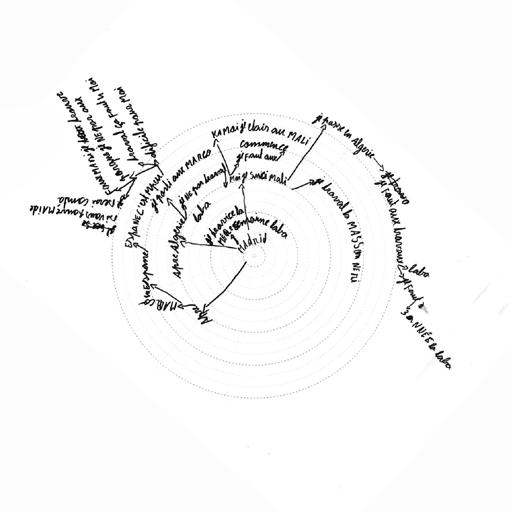
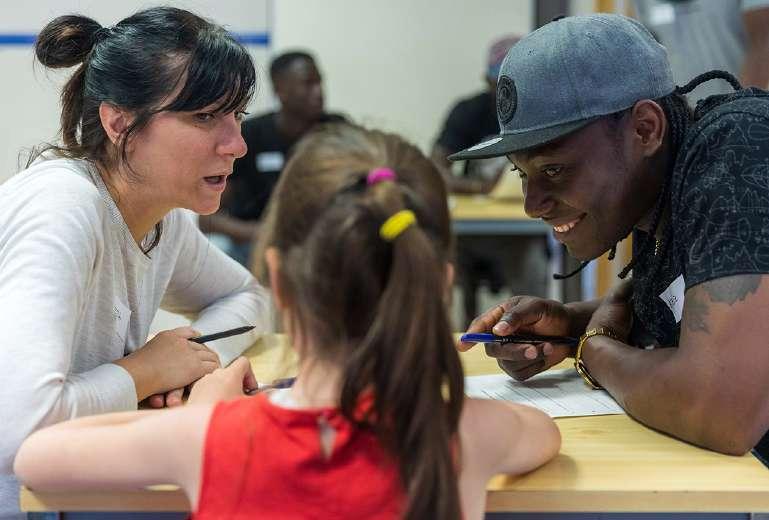
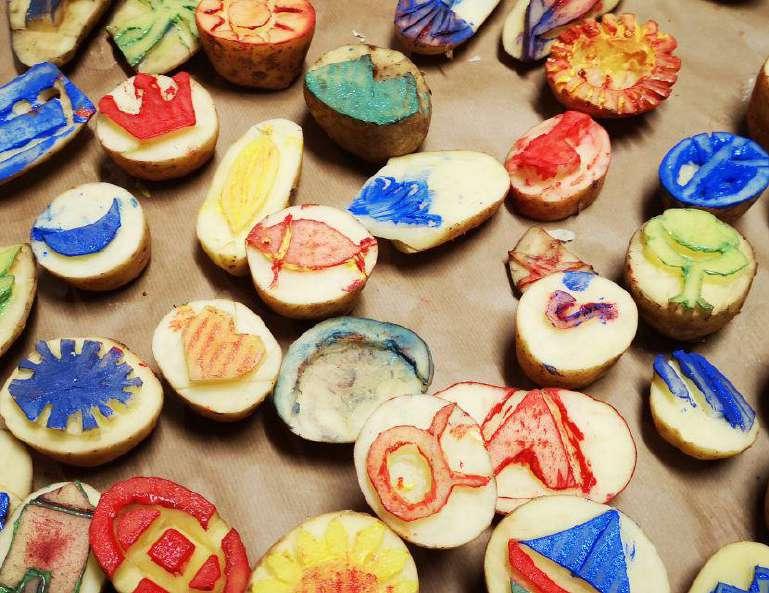
2016-2020
GRIGRI PIXEL

IMAGES:

Previous page: A moment during the conversation between Marina Garcés and Felwine Sarr in the Plaza de Letras, in front of Medialab Prado. This page (up): One of the work tables during the previous sessions for the drafting of the Hospitality Manifesto. This page (down): Part of the stamps made in one of the previous sessions for the manufacture of a Hospitality Teaser.
What makes us "neighbors"?
What agreements can we reach to be able to recognize ourselves in shared collective identities, and from plural and inclusive sense of belonging?
In what ways can we formalize, symbolically and materially, the commitment and mutual recognition with others, with our neighborhood and city?
From May to June we launched four sessions to generate a common framework from which to regain confidence in doing together in the face of the challenge of building a city and community among people who belong to “worlds”, a priori, distant and alien.
2016-2020
G R I G R I P I X E L

IMAGES:
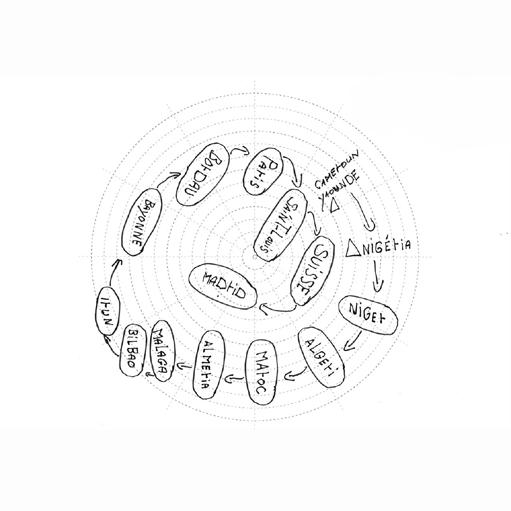
This page (up): Reading of the Hospitality Manifesto carried out by the Community Mediators team. This page (down): One of the work tables during the previous sessions for the preparation of the Trajectory Maps. Next page: A moment during the conversation between Marina Garcés and Felwine Sarr.
During the three consecutive Thursday afternoons - May 23 and 30 and June 6 - we have developed an open and free program composed of three workshops to exchange and materialize transit, migration and hospitality experiences with the migrant community of Africa Sub-Saharan SERCADE center.
The workshops combined reflection and material production, on the one hand, to shape a neighborhood manifesto or pact through the joint elaboration of a text that includes an idea of “we” and; on the other hand, collectively produce a teaser, an object composed of multiple pieces (one piece for each person involved in the work process) that, embedded together, symbolically materialize the pact reached.
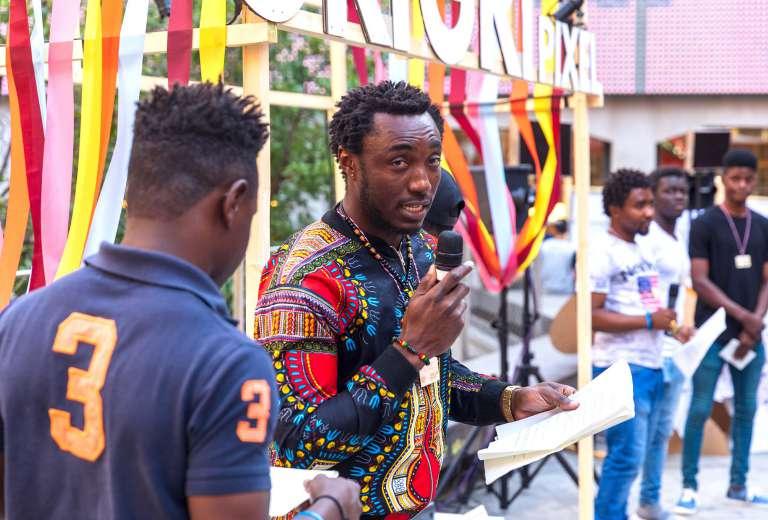

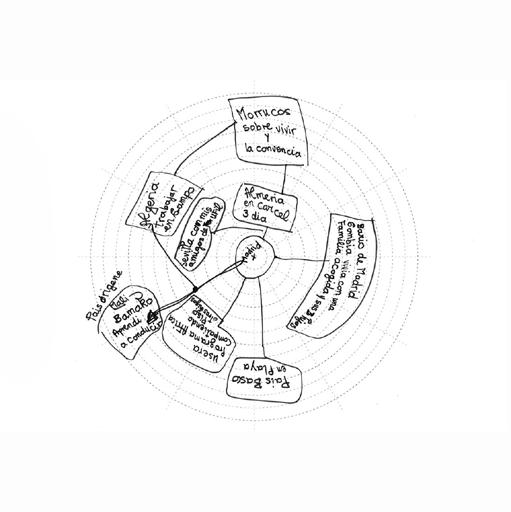

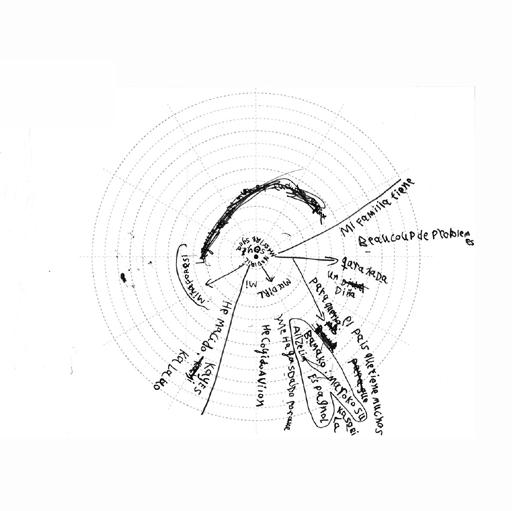

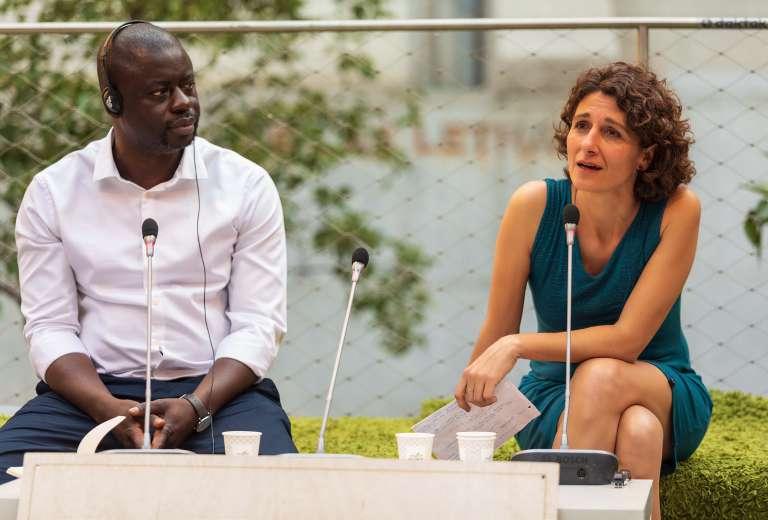
2016-2020
GRIGRI PIXEL


In the fourth session we invited Marina Garcés (UOC professor and philosopher from Barcelona) and Felwine Sarr (thinker and economist from Dakar) to a public conversation, outdoors in the Plaza de Letras, to think and share different forms and strategies to reestablish or generate feelings of belonging to a common territory that are not marked by the origin of the people who inhabit it, but by the fact of living, sharing and intervening in it. How to make us meet? How to make the neighborhood or the city a "house"? or What makes us “neighbors”? These are some of the questions we try to answer.

2016-2020
G R I G R I P I X E L
Les Chaises Koubeyni NIAMEY 2019
From June 17 to 30, 2019 in the Technical Office of Spanish Cooperation in Niamey and in the Arène Théâtre Space.
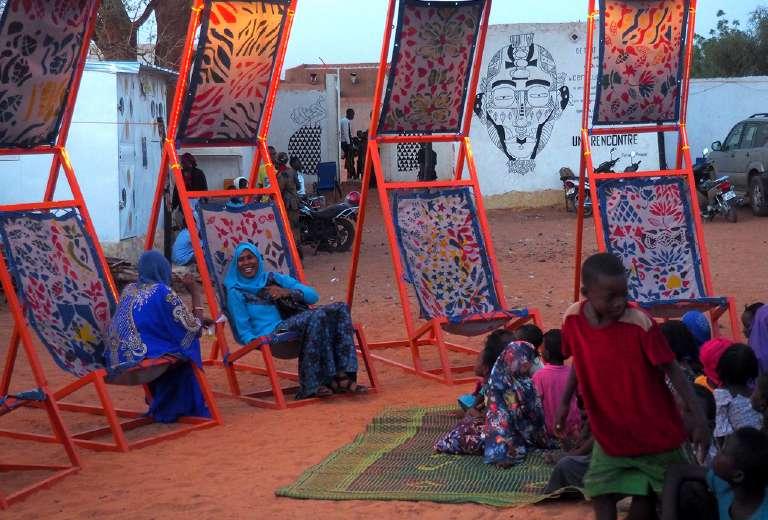
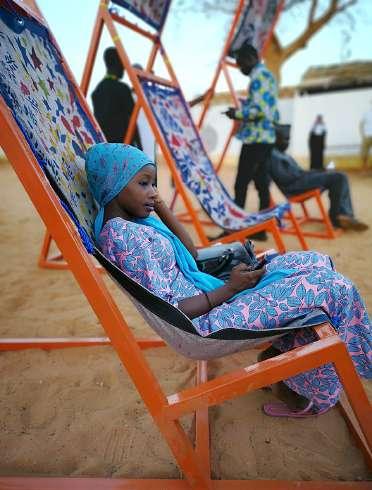
Within the framework of the IV Edition, we were invited by the Spanish Embassy in Niger to conduct a production workshop on the theme of Hospitality. In the context of the fourth edition of Grigri Pixel a meeting was held in Niamey (Niger) to activate a reflection on hospitality in this territory, thanks to the invitation of Victor Franco, in charge of cultural affairs of the Embassy of Spain in Niamey.
The encounter, which takes place during the second half of June 2019, is presented as a continuation of the process initiated in Madrid in May of the same year, a work developed in collaboration with the NGO SERCADE and the community mediators program of the Casino de la Reina. During these previous sessions we reflected and made collective creations to approach a story about hospitality in the city of Madrid in collaboration with migrants who use Sercade services.
The aim of these previous sessions is to generate a framework that serves as a starting point for the intensive workshop planned in October, thus, throughout the meeting held in Niamey, work is being carried out around formats similar to those proposed in Madrid. On the one hand, a collective catalog of hospitality maps is prepared based on the personal trajectories of the participants. On the other hand, we are working on the drafting of a Hospitality Manifesto.
Finally, a design and construction workshop is developed that results in the manufacture of a collective amulet: Les Chaises Koubeyni.

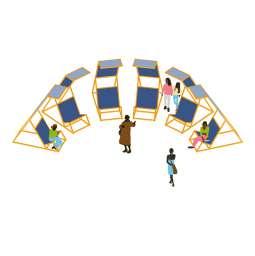


2016-2020
GRIGRI PIXEL

IMAGES:

Previous page: About to begin the presentation and final party at Arène Théâtre. This page (up): Zainabou, one of the participants, during the manufacture of solar panels. This page (down): Ali Narey, along with other participants, holding the textile pieces in the metal structures of Les Chaises Koubeyni.
The proposed design and construction workshop relied on two main elements: the construction of a furniture element capable of generating a reception space and the manufacture of an electronic system to provide self-sufficiency in terms of energy consumption to these furniture elements.
In this way the chairs of hospitality or Les Chaises Koubeyni arise, a space created collectively to read the manifesto of hospitality elaborated throughout the workshop. These chairs are also a place to lie down and protect from the Sahelian sun, they are a self-sufficient urban amulet that captures the sun's energy through self-constructed solar panels and that transforms it into lighting.
2016-2020
G R I G R I P I X E L
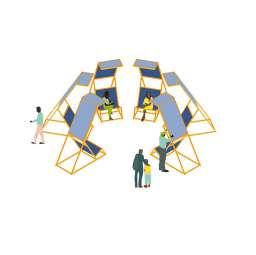
IMAGES:
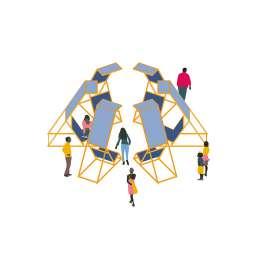
This page (up): One of the attendees at the final presentation event. This page (down): The hospitality chairs grouped together to form a small meeting space. Next page (up): Ali Garba, Yaya Toure and Souleymane Abdou in the hospitality chairs during a moment of the final party. Next page (down): Group photo with all the participants in the workshop a few moments before the final presentation.
Les Chaises Koubeyni are also a scenic resource for the Arène Théâtre company space, located in the Séno district, in the north of the city of Niamey.
This district was founded in 2012 to welcome people victims of the heavy floods of August of that same year, it is a neighborhood with all kinds of deficiencies and is also a place of reception of migrants from other African countries.
Thanks to the presence of the company in this territory, it links its activities with a particularly neglected and marginalized population, hosting, for example, part of the programming of the Bijini Bijini Festival of street arts, offering also artistic formations and cultural to the people who live nearby.

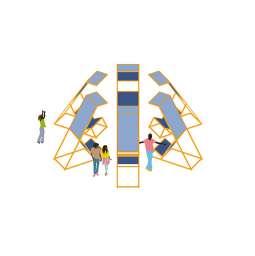

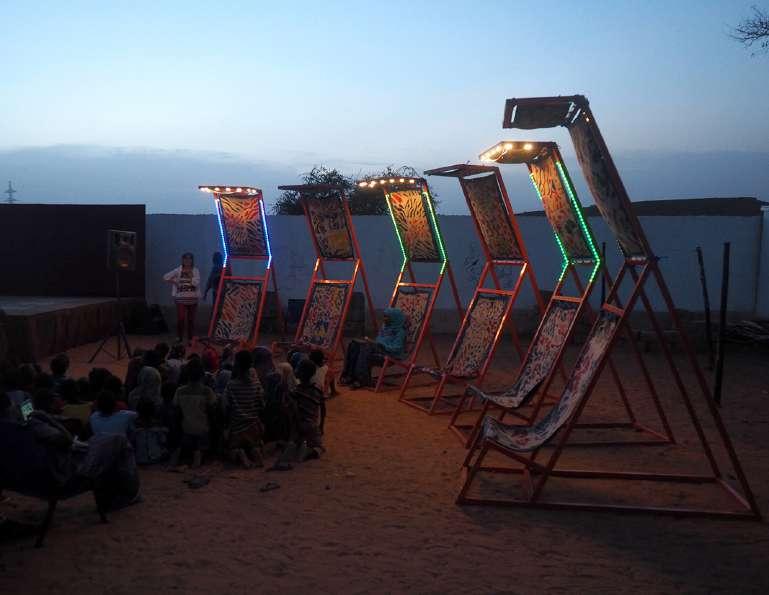


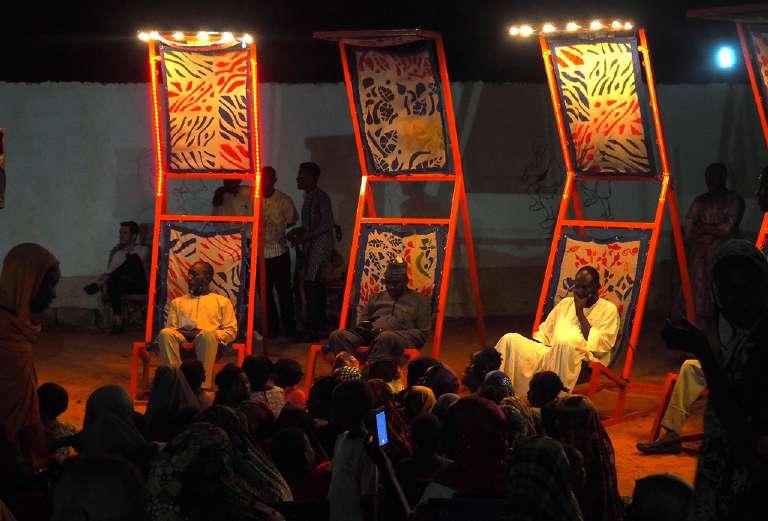
2016-2020
GRIGRI PIXEL


Participants in the workshop: Fatouma Akiné Nana Kadidjatou Aboubacari Moussa Gentil Mahaman Bachir Mohamed Abdoulmunime Jean Rene Kokoye Ali Narey Jhade Tawakal Abdel-Razak Toure Seydou Mouhamed Kitary Coulibaly Mahamadou Illias Ango Ismael Maman Boukari Ali Garba Abder Raouf Garba Zeinabou Moussa Amadou Zeinabou Lawali Souleyman Abdou Alhousseini Yaye Toure

2016-2020
G R I G R I P I X E L
¿Hasta dónde se abre tu casa? MADRID 2019
From October 14 to 26 2019 in Medialab Prado and SERCADE.

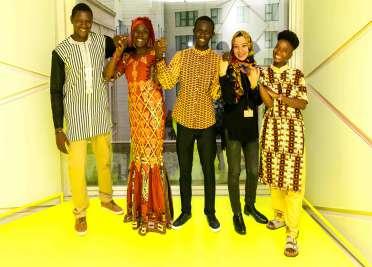
The team of guests: Gildas Guiella from Ouagadougou, Nana Kadidjatou from Niamey, Amadou Mbaye from Gandiol, Meryem Aboulouafa from Casablanca and Ana Raquel Machava from Maputo. At the end of World War II, there were seven walls or fences throughout the world that prevented population transit between territories. Today, while rescue ships are prevented from docking in their ports, criminalizing their reception with the complicity of the entire European international community, who pay countries in conflict and without the basic humanitarian guarantees to jealously guard their borders, we count on with seventy-seven walls and fences around the world, most erected after September 11, 2001.
But these physical walls and fences also have their counterpart on a practical and discursive, ideological level. At the same time that in the general political sphere there is a return to the most essentialist identitarianisms, on an international scale independence movements proliferate and the most xenophobic and racist right resurfaces, defending national unity by reinforcing borders and taking the impoverished and migrant foreigner as a scapegoat to structural problems. On a local scale, inside cities, other socio-economic frontiers also appear with direct and unequal repercussions on bodies.
To do this, we propose to take as a work axis for our workshops and reflections the practice of hospitality and the figure of neighbors (in community) as a collective subject whose power lies in the fact of “coming” to a territory, sharing it, inhabiting it, defining it and giving life to it from practice and the common present, regardless of the origin of each one.
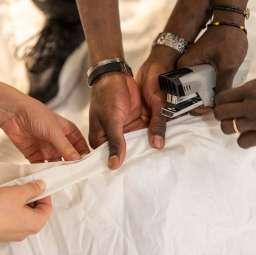

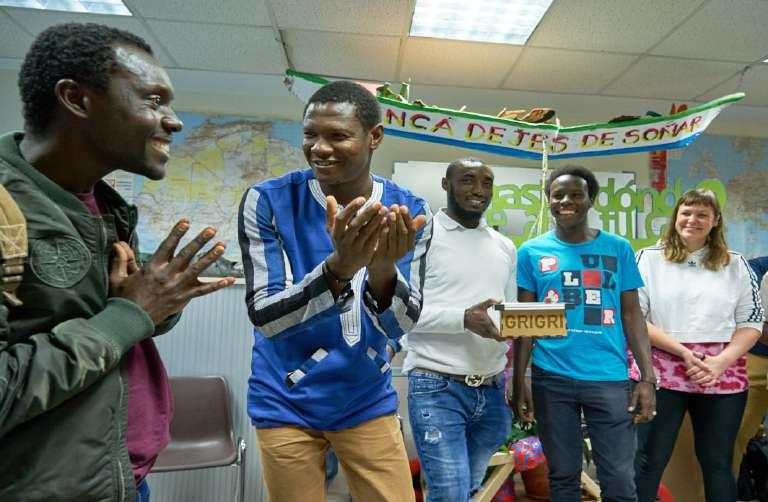
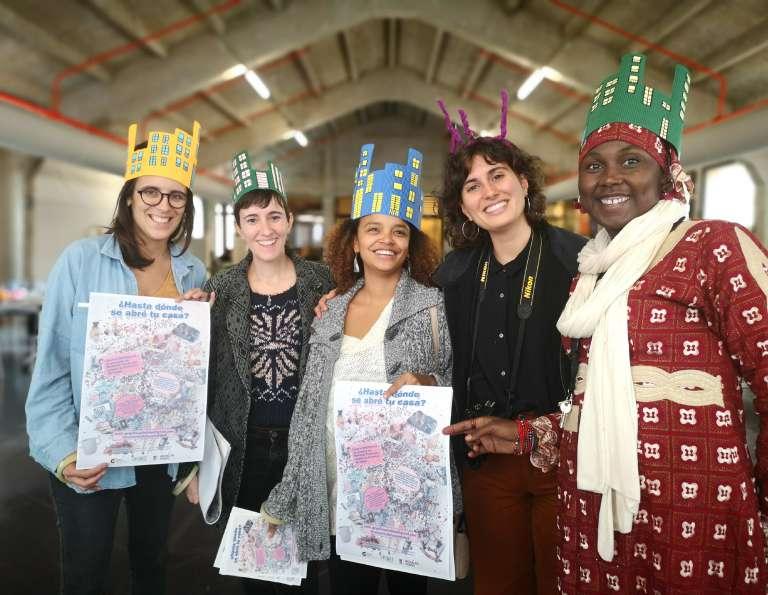
2016-2020
GRIGRI PIXEL
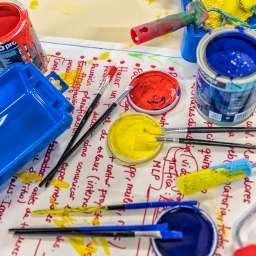
IMAGES:

Previous page: About to start the presentation and final party in the Plaza de Letras. This page (up): Guildas, founder of OuagaLab, along with Steve, Adam and Lena, participants in the workshop, during the session held at SERCADE. This page (down): Adriana, Blanca, Yanelys, Paula and Natou during the preparation of the communication resources of the collector team. This page (images strip): Some moments during the manufacture of the inflatable, the cart and the grigri-box; these were the three objects or grigris resulting in the three working groups proposed during the development of the workshop.
Through multiple collaboration between Medialab Prado, SERCADE and the Association of Neighbors of the Las Letras neighborhood, we want to ask ourselves a series of common questions and propose a program of actions, workshops and seminars that, throughout the year (with a series of workshops and a discussion) and now, in October (with the construction workshop and the seminar), help us to answer them partially and to get a little closer to our objective.
The framework of hospitality and welcoming gestures are very useful for us to work on common urban spaces because they require us to open (ourselves) and give space and place to what is yet to be known, to the unknown, the apparently different, foreign and strange, but that promises a transformative encounter. Or at least, disruptive.
2016-2020
G R I G R I P I X E L
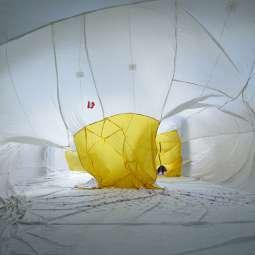
IMAGES:

This page (up): One of the performances that took place during the final presentation party. This page (down): A group of people inside the inflatable attending the projection of the film that included the work of collecting stories about hospitality. Next page (up): Paula Domingo, Serigne Mbaye and Abdourahmane Seck during the seminar held in Sercade. Next page (down): Group photo with all the participants in the workshop a few moments before the final presentation. Images strip: Different situations inside the inflatable during its use and manufacture.
Hospitality, then, is not only the practice of welcoming the foreigner, but of everything different, outsider, that arises on the margins of a society or on the limits of our thinking. Where until now the possible ended.
Therefore, starting from an initial trust and without guarantees (we do not know what will result from the encounter), hospitality helps us expand what it is possible, to identify our own borders, limits, hierarchies, prejudices, assumptions and fears to interrogate, question, try to cross them , grow and open ourselves, not without difficulties, to mutual learning and (self) knowledge through questioning and displacement of our respective starting points: geographical but also "of view" and privileges.
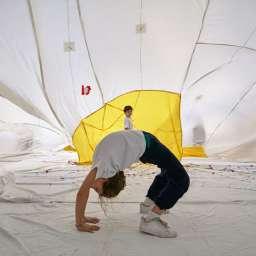
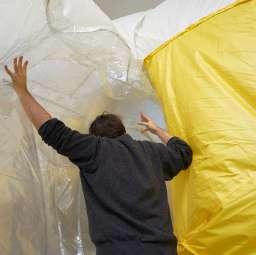

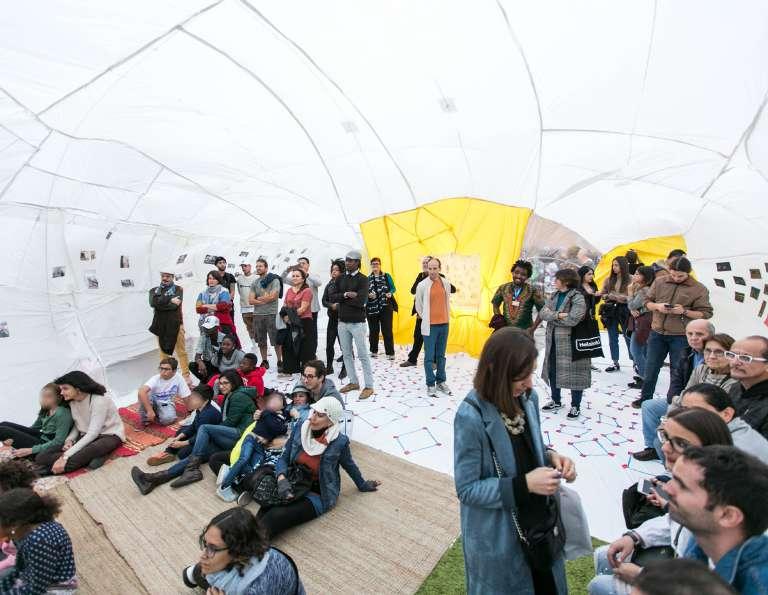



2016-2020
GRIGRI PIXEL
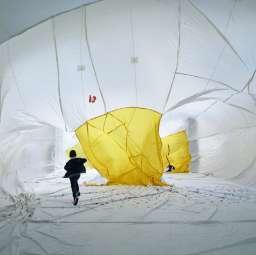
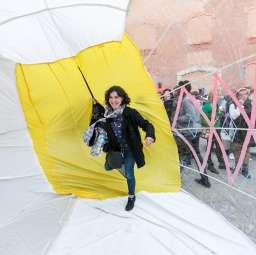
The hospitality that frames the Grigri Pixel 2019 seeks to be a cosmopolitan practice that takes freedom of movement for granted and that equalizes us in the right to difference and to access, transit, be and remain in a place. But welcoming us and giving (us) a place does not refer only to offering and receiving physical and geographical space, to having a roof; but also to be able to transit and inhabit common identities and welcoming and inclusive inter-subjective places that are “home” - made of experiences, bodies, memories, shared imaginary… -. Make (us) a common place and feel that we belong: start from ourselves to leave ourselves and become (us) others.

A project by:







